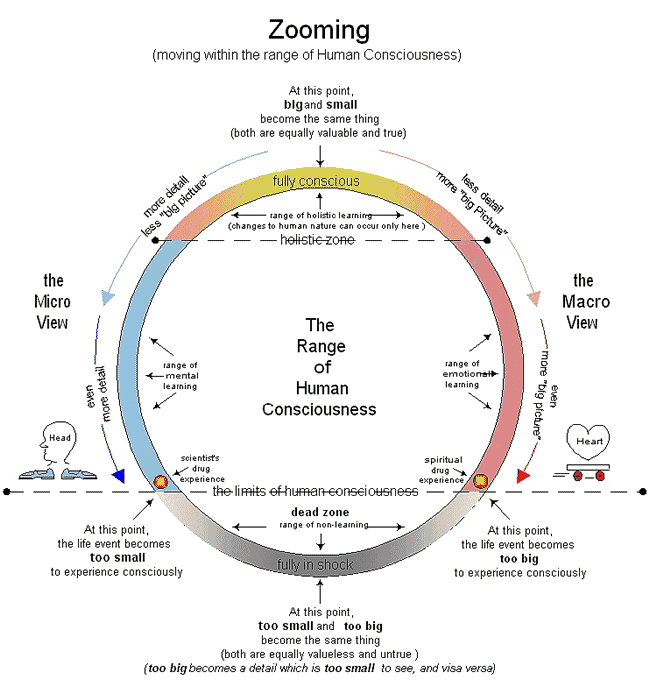How We Understood the Conciousness of Human Action?

Image Source
Is human all spiritually a free being in their thinking and acting, or would he say he is constrained by the need of simply natural law? There are few inquiries whereupon so much insightfulness has been conveyed to hold up under. The possibility of the freedom of the human will has discovered energetic supporters and persistent adversaries. There are the individuals who, in their moral enthusiasm, name anybody a man of restricted insight who can deny so patent a reality as freedom. Against them are other people who view it as the top of unscientific thinking for anybody to trust that the uniformity of natural law is softened up the circle of human action and thinking.
Limitless nuance has been utilized to clarify how human freedom can be predictable with the laws working in nature, of which man, all things considered, is a responsible. No less is the inconvenience to which others have gone to clarify how such a hallucination as this could have emerged. That we are managing here with a standout amongst the most critical inquiries of life, religion, conduct and science, must be felt by any individual who incorporates any level of painstaking quality. It is one of the pitiful indications of the triviality of present day suspected that a book which endeavors to build up another confidence out of the consequences of late scientific research, has nothing more to state on this inquiry than these words.
With the topic of the freedom of the human will we are not concerned. The affirmed freedom of detached choice has been perceived as a void illusion by each philosophy. The moral valuation of human action and character stays untouched. Everybody who says to have developed past the kindergarten phase of science seems to know these days that freedom can't comprise in picking one's desire, one or other of two conceivable strategies. There is dependably a superbly clear motivation behind why, out of a few conceivable actions, we do only one and nothing else.

Image Source
The primary assaults of the adversaries of freedom are coordinated just against freedom of choice. Indeed, even Herbert Spencer, whose regulations are making progress day by day, says, "That everybody is at freedom to want or not to want" Others, as well, begin from a similar perspective in fighting the idea of free will. All that Spinoza presented in clear and basic dialect against the possibility of freedom has since been rehashed times without number, yet generally speaking concealed in the most hair-part hypothetical regulations, so it is hard to perceive the direct line of reasoning which is the only thing that is in any way important.
Lets come down to things which are altogether controlled by outside causes to exist and to act in a settled and unequivocal way. To see this all the more unmistakably, let us envision a flawlessly basic case. A stone, for instance, gets from an outer reason following up on it a specific amount of movement, by reason of which it fundamentally keeps on moving, after the effect of the outside reason has stopped. The movement of the stone is because of impulse, not to the need of its own inclination, since it requires to be characterized by the pushed of an outer reason. What is valid here for the stone is genuine for each other specific thing, however entangled and versatile it might be, in particular, that everything is essentially controlled by outside causes to exist and to act in a settled and clear way.
Lets assume that this stone amid its movement considers and realizes that it is endeavoring to the best of its capacity to proceed in movement. This stone, which is cognizant just of its endeavoring and is in no way, shape or form apathetic, will trust that it is completely free, and that it proceeds in movement for no other explanation than its own particular will to proceed. In any case, this is quite recently the human freedom that everyone cases to have and which comprises in only this, that men are aware of their desires, however insensible of the causes by which they are resolved. In this way the youngster trusts that he desires drain of his own free will, the furious kid views his want for retribution as free, and the defeatist his want for flight.
Once more, the intoxicated man trusts that he says of his own free will, what he would fain have left implied, and as this partiality is natural in all men, it is hard to free oneself from it. In spite of the fact that experience shows us frequently enough that man in particular can temper his desires, and that, moved by clashing interests, he sees the better and seeks after the more terrible, yet he views himself as free in light of the fact that there are a few things which he desires less unequivocally, and a few desires which he can without much of a stretch restrain through the memory of something different which it is regularly conceivable to review.

Image Source
Since this view is so plainly and unquestionably communicated it is anything but difficult to identify the key blunder that it contains. A similar need by which a stone makes an unmistakable development as the aftereffect of an effect, is said to urge a man to do an action when affected thereto by any reason. It is simply because man is aware of his action that he supposes himself to be its originator. Yet, in doing as such he disregards the way that he is driven by a reason which he can't resist complying. The blunder of this idea will soon be found.
No one will deny that the kid is unfree when he desires milk, or the tipsy man when he says things which he later laments. Neither knows anything of the causes, working in the profundities of their creatures, which practice powerful control over them. In any case, is it legitimate to irregularity together actions of this kind with those in which a man is cognizant of his actions as well as of the reasons which make him act? Are the actions of men truly every one of one kind? Should the demonstration of a soldier on the field of fight, of the scientific analyst in his research facility, of the statesman in the most entangled discretionary transactions, be put scientifically on a similar level with that of the youngster when it desires drain?
It is true that it is best to look for the arrangement of an issue where the conditions are most straightforward. In any case, failure to segregate has before now caused perpetual perplexity. There is a significant contrast between knowing why a person acting and not knowing it. At first sight this appears a plainly obvious truth. But then the adversaries of freedom never solicit themselves whether an intention from action which perceived and see through, is to be viewed as necessary for in an indistinguishable sense from the natural procedure which makes the child weep for milk.

Image Source

We can't do nothing without the consciousness. We must be conscious to all things we will do. This good post is going to inform us about the human and his/her ability to think clearly. Thanks.
Downvoting a post can decrease pending rewards and make it less visible. Common reasons:
Submit
Clearly consciousness is important in every human being but there is something to it that we should understand. Something that is not yet understood, something that we need to find out.
Downvoting a post can decrease pending rewards and make it less visible. Common reasons:
Submit
That's why the Psychology was here.
Downvoting a post can decrease pending rewards and make it less visible. Common reasons:
Submit
Great post kapatid i enjoyed reading your blog.
Downvoting a post can decrease pending rewards and make it less visible. Common reasons:
Submit
Glad you like it
Downvoting a post can decrease pending rewards and make it less visible. Common reasons:
Submit